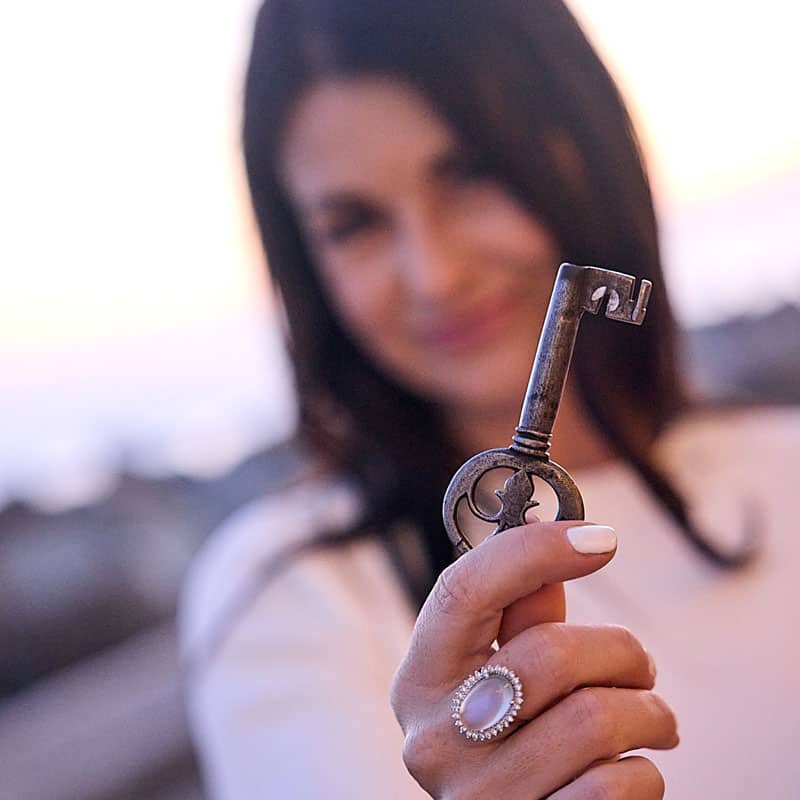Valentine’s Day Lies About Love
It’s February. Everywhere you look, sweet-smelling red roses, assorted chocolates, and heart-shaped balloons surround you. Even if you want to avoid it entirely, you can’t escape the cultural messages of romantic love: Valentine’s Day is coming.
Cultural Pressure and Skewed Messages of Love on Valentine’s Day
Popular in the United States and spreading into the global community (Kovzele, 2021; Relationships Australia Study), commercially-reinforced cultural pressure to celebrate and impress your mate on Valentine’s Day is palpable. More specifically, Valentine’s Day exacerbates the cultural message that you should have a mate (or at least a date—certainly don’t be single!), buy them an expensive gift, and express your unending affection for them in a romantic way.
In a 2020 study of singles by Plenty of Fish, 51 percent felt pressure to be romantic, 43 percent to be in a relationship, 42 percent to go on a date, and 41 percent to act like the holiday is meaningful. In addition, 43 percent of respondents thought it was the most pressure-filled holiday and one-in-five wished that it could be cancelled all together.
These cultural messages strongly affect our behavior: According to 2022 data from the National Retail Federation, people in the United States spent $23.9 billion on Valentine’s Day gifts, with candy, greeting cards, and flowers being the most popular. In addition, we are encouraged to express highly skewed messages about love to our mates. A quick perusal of the cards at your local store displays the unrealistic, fantasy versions of romance perpetuated on this holiday. Sentiments like:
- You’re my one and only true love, forever.
- You’re my everything.
- You always take my breath away.
- My heart is all yours, always.
- You’re my forever love.
- My heart belongs to you, now and always.
- You complete me.
Truth be told, most of us love hearing these sweet sentiments from our current flame—they make us feel special, wanted, and adored. But should we? None of these statements actually reflects what a person can honestly promise or say. You can’t know the future. You can’t own another person or their heart. In fact, the only guarantee we have in life is that things will change over time.
Communicating Honestly on Valentine’s Day
The more we feed into the socially-reinforced, overly-romantic messages about love as a promise to be together forever, only have romantic feelings for one other human, and guarantees about how you will feel, act, and think in the future, the more we perpetuate unrealistic expectations of romantic relationships.
Recent research suggests that Valentine’s Day can actually be unpleasant, stressful, and emotionally upsetting for many. A recent study of over 2000 participants found that people who did not receive a gift on Valentine’s Day reported more symptoms of depression than those who did get a gift (Lange et al., 2022). While men in the study tended to rebound in mood after about two weeks, women’s self-reported symptoms of sadness often lingered over three weeks.
In a well-cited study examining how Valentine’s Day affects dating relationships, Morse and Neuberg (2004) found that romantic relationships that were unstable leading into the holiday were nearly five times more likely to break up in the two-week period surrounding Valentine’s Day than atn other times during the year.
So, as you think about what you may want to communicate to a dating partner, spouse, or loved one (remember that you can celebrate friends, family and yourself on this holiday too!), remind yourself to only communicate things you can honestly say. A few tips to get you started:
- Focus on how you feel today. The only thing you know for sure is how you feel now and how you felt in the past—not how you will feel in the future—so focus there.
- Cut out extreme language. Always, never, and forever are rarely descriptions you can truthfully use when it comes to romantic love!
- Say what you honestly appreciate about your partner and your relationship.
- If you want to talk about the future, focus on your hopes and goals. Don’t promise things you can’t know will be true.
For example, you may be able to honestly say something like these statements:
- As I write this card today, I’m reflecting on how much I love you. Thank you for going on this life journey with me. We’ve been though many ups and downs, and I’m so grateful that we’re still here together.
- I love you. Thank you for being you.
- Being with you is part of what gives my life meaning. You’ve been such an important person to me and I’m grateful to you for being by my side.
The Naked Truth. Valentine’s Day perpetuates highly untrue messages about romantic love. This creates a great deal of pressure—to seem perfect, make promises for the future, and boldly convey that your mate is and always will be the most important person in your life. If you want to express love to your mate this year, do so with a nod towards honest communication. It will help our cultural community develop a more realistic view of romantic relationships and make you more trustworthy over time because you won’t be spreading overly-idealized messages about love.
Copyright Cortney S. Warren, Ph.D., ABPP
Note: This content is only for informational and educational purposes and should not be considered therapy or any form of treatment. I cannot respond to personal requests for advice over the internet. Best on your continued journey.
References
Kovzele, O. (2021). Perception of St. Valentines Day in the Culture Space of Latvia. Technium Social Sciences Journal, 15, 516-525.
Lange, R., Jerabek, I., & Dagnall, N. (2022). Do the ‘Valentine’s Day Blues’ Exist? A Legacy Report on a Purported Psychological Phenomenon. Journal of Scientific Exploration, 36, 49-68.
TO READ MORE OF DR. CORTNEY'S WORK, SUBSCRIBE TO HER BLOG
Safe subscribe. You will have the opportunity to opt-out with every notice we send.


